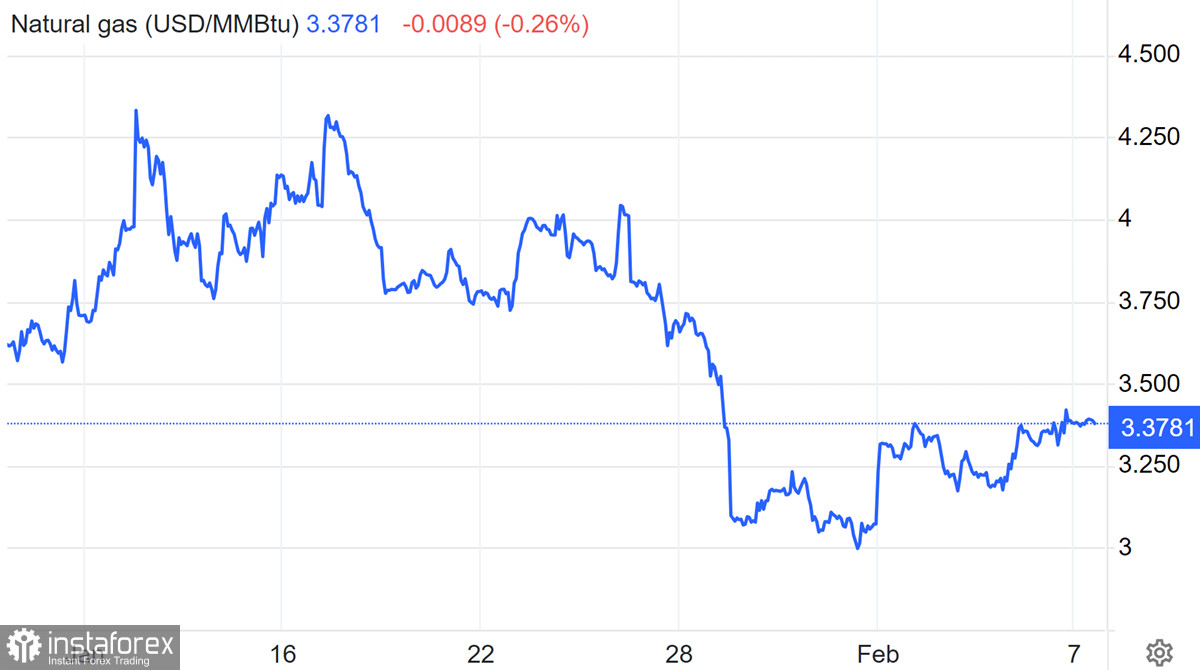
Brent crude continued its decline in yesterday's trading, falling another 0.6%. However, during the final trading session of the week, the market is showing a rebound, with Brent rising 0.7% and briefly reaching $75.3 per barrel.
Geopolitical Tensions Remain a Key Uncertainty
Following a meeting between Donald Trump and Benjamin Netanyahu, the U.S. president stated that Gaza would come under Washington's control, and Palestinians would be relocated to safer regions.
This statement triggered a strong reaction from Hamas, which rejected the possibility of relocation. Later, U.S. Secretary of State Marco Rubio clarified that while the U.S. is ready to participate in Gaza's reconstruction, it has no intention of controlling the territory. Additionally, the U.S. defense minister ruled out deploying American troops to the region.
These conflicting statements reflect Trump's administration's attempt to soften its stance, yet they continue to impact the oil market.
At the same time, Trump renewed his calls for lower oil prices, causing a short-term drop in Brent prices. However, the market quickly recovered, suggesting that oil traders are becoming more accustomed to high volatility triggered by political remarks.
Technical Outlook on Brent Crude
Brent tested support at $74.85 but failed to break lower. This provided bulls with a chance for a rebound, with the next upside target at $76.7.
However, it is too early to confirm a full trend reversal—more signals are needed to validate the market's readiness for a sustained uptrend. If buyers maintain momentum, Brent could consolidate above $76.7 and move toward the $77–78 range.
Gas
Natural gas futures remain below descending resistance, with a potential breakout toward $3.5/MMBtu. The outlook remains mixed, keeping market participants on edge.

EIA Report Highlights Divergent Trends
- U.S. gas prices declined, while international markets saw strong gains.
- Henry Hub spot prices fell from $3.29 to $3.22 within a week.
- LNG prices in East Asia rose by $0.32 to $14.40, while Dutch TTF futures surged by $1.00 to $16.08.
Key Market Drivers & Potential Impact
U.S. Sanctions on Iranian Oil
The U.S. Treasury Department expanded sanctions against financial networks linked to Iranian oil exports to China.
Market Impact: Increased uncertainty over Iranian crude supply could reshape trade flows and support global oil prices.
Russian Urals Crude Plunges Below $60
Urals crude fell below $60 per barrel, widening the discount to Brent to nearly $16. The G7 price cap remains at $60, limiting insurance and transportation for Russian oil above this level.
Market Impact: If Urals continues to decline, it may affect Russian budget revenues and shift more crude flows toward Asia.
Decline in Chinese Refinery Output
China's private refiners cut production to pandemic-era levels, citing reduced crude supply from Russia.
Market Impact: This reinforces the broader trend of shifting global trade flows due to sanctions and geopolitical instability.
European Refinery Maintenance Season
European crude prices hit multi-month lows, coinciding with the start of refinery maintenance season.
Market Impact: Temporary reduction in crude demand from European refiners could pressure Brent prices in the short term.
Slower U.S. Oil Production Growth
U.S. shale producers signaled a 25% slowdown in output growth in 2025, particularly in the Permian Basin.
Market Impact: Long-term support for oil prices, especially if OPEC+ maintains production cuts.
Shipping Risks in the Red Sea
Oil majors are urging renewed safe passage through the Red Sea, a critical transit route for crude and LNG.Market Impact: Any escalation could push freight rates higher, adding logistical risks to global energy supply chains.





















